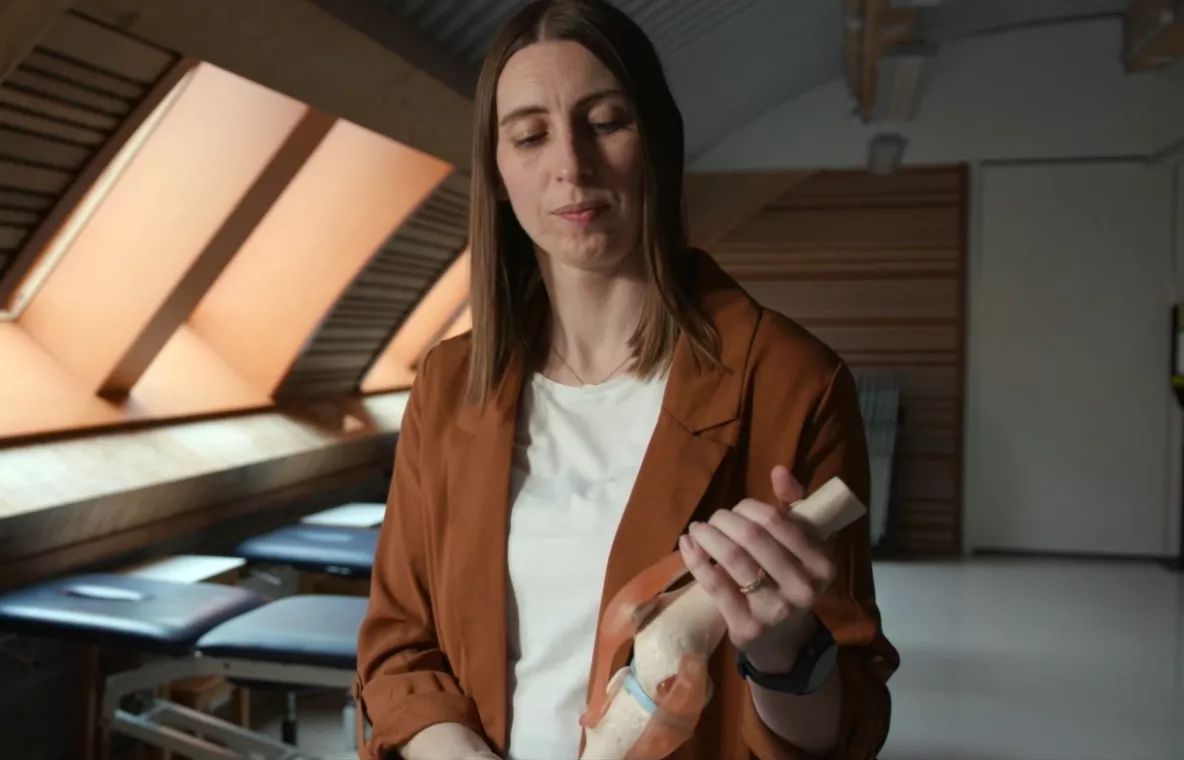
A researcher at University of Limerick has contributed to a major new international study into sport-related concussion that could change how it is treated.
A group of more than 100 expert researchers and clinicians from around the world, including UL researcher Dr Clodagh Toomey, has distilled and synthesised new scientific evidence and updated existing recommendations with the aim of optimising the care of athletes at all levels of participation who have, or who are at risk of, concussion.
Based on the outcomes from the international Conference on Concussion in Sport, held in Amsterdam in October 2022, and just published in the British Journal of Sports Medicine, the statement is informed by 10 systematic reviews and methodology outlining the new consensus process. It took more than five years to complete.
Dr Clodagh Toomey, a physiotherapist and Research Fellow at the School of Allied Health, University of Limerick, was an invited co-author on a systematic review related to ‘Rest and Exercise Early after Sport-related Concussion’, due to her methodology expertise and research carried out while at the University of Calgary.
“We screened thousands of articles in a rigorous systematic review and meta-analysis of studies that that evaluated how rest, physical activity, cognitive activity, exercise, and sleep impact recovery following a sport-related concussion,” Dr Toomey explained.
“From this process we have learned that there is now stronger evidence that light intensity physical activity in the initial two days after a sport-related concussion, such as routine activities and aerobic exercise like walking and stationary cycling, can aid recovery.
“Strict rest after a concussion is not recommended. In addition, limiting screen time in the first two days after concussion can facilitate recovery. After the second and up to 10 days following concussion, prescribed sub-symptom threshold aerobic exercise treatment can facilitate recovery, and reduces the incidence of post-concussive symptoms. We also found that any disturbance in sleep appears to impair recovery,” Dr Toomey added.
In a bid to be more transparent and inclusive than in previous research in this area, the expert panel adopted anonymous voting, alternative viewpoints, open declarations of potential conflicts of interest, and included the views of athletes, a focus on para-athletes, and ethical perspectives as part of the consensus process.
Other findings from the international research include a series of new and updated age-appropriate tools for clinicians and sports organisations to help them better identify and manage sports related concussion in the short and longer term.
“These findings may change the way clinicians approach their treatment and tailor their advice following a sport-related concussion. As these consensus activities are backed by numerous sports organisations around the world, we can ensure that the latest evidence on concussion reaches coaches and medical teams quickly,” Dr Toomey explained.
The wider study features new evidence-based strategies for returning to active sport and education after concussion; early exercise and treatment recommendations; approaches to prevention; targeted rehabilitation; and a call for a working group to be set up to guide further research on the potential long-term effects of concussion on health.
Commenting on the findings, Consensus Statement co-chair, Dr Kathryn Schneider of the University of Calgary, Canada, said: “This Statement sets out a range of new evidence-based recommendations, including those for concussion prevention as well as new versions of the concussion assessment tools and return to sport and school/learning strategies.
“We encourage clinicians and sports organisations around the globe to adapt these recommendations to their own geographic and cultural environments to optimise the care of athletes who have sustained, or who are at risk of, concussion,” she added.
Consensus Statement co-chair, Professor Jon Patricios of Wits University, Johannesburg, South Africa, explained: “The differentiating aspects of this latest Concussion Consensus are the rigorous methodological process we adopted, the new generation of tools available to clinicians, and the emphasis on the positive impact of exercise and targeted rehabilitation as effective interventions.
“These have the potential to positively change the management of sport-related concussion.”